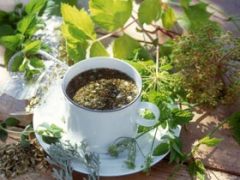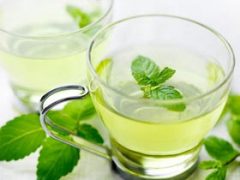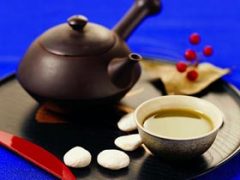 Gastritis refers to a condition in which the lining of the stomach becomes inflamed. In some cases, this condition can develop suddenly. In other situations, it comes about gradually and in a more chronic state of development. The condition is often caused by bacteria, specifically H. pylori (Helicobacter pylori) but may be caused by other viruses and infections as well. Gastritis may also be the result of damage or distress to the stomach such as that caused from excessive alcohol, drug or medication use and irritation from other general causes. Gastritis can be a mild condition, but without treatment of the underlying cause of the condition, it can lead to bleeding problems and even stomach cancer. The condition is diagnosed with blood tests, an endoscopy procedure and sometimes stool tests. Treatment for gastritis is very dependent upon what is causing it. When bacteria presence is suspected, antibiotics are often employed. When excessive stomach acid is to blame, then antacids and dietary changes are implemented. Resolution of the source of gastritis often leads to symptom reduction, and medical care is often required to both treat the condition and the underlying causes. However, there are natural remedies for gastritis that you may want to consider in conjunction with regular treatment and lifestyle changes. Something as simple as a tea for gastritis can resolve the symptoms of the condition and put the stomach on the path to healing. If you are thinking about herbal tea remedies for gastritis, be sure to discuss them with your doctor before hand to ensure that they are safe for you and your specific situation. Additionally, remember that while herbal tea recipes are generally mild and safe, there are some side effects that have been attributed to some herbs. A tea for gastritis may prove less prone to causing side effects than certain medications, but assuming safety with all herbal remedies is irresponsible, especially in conditions that have known serious outcomes.
Gastritis refers to a condition in which the lining of the stomach becomes inflamed. In some cases, this condition can develop suddenly. In other situations, it comes about gradually and in a more chronic state of development. The condition is often caused by bacteria, specifically H. pylori (Helicobacter pylori) but may be caused by other viruses and infections as well. Gastritis may also be the result of damage or distress to the stomach such as that caused from excessive alcohol, drug or medication use and irritation from other general causes. Gastritis can be a mild condition, but without treatment of the underlying cause of the condition, it can lead to bleeding problems and even stomach cancer. The condition is diagnosed with blood tests, an endoscopy procedure and sometimes stool tests. Treatment for gastritis is very dependent upon what is causing it. When bacteria presence is suspected, antibiotics are often employed. When excessive stomach acid is to blame, then antacids and dietary changes are implemented. Resolution of the source of gastritis often leads to symptom reduction, and medical care is often required to both treat the condition and the underlying causes. However, there are natural remedies for gastritis that you may want to consider in conjunction with regular treatment and lifestyle changes. Something as simple as a tea for gastritis can resolve the symptoms of the condition and put the stomach on the path to healing. If you are thinking about herbal tea remedies for gastritis, be sure to discuss them with your doctor before hand to ensure that they are safe for you and your specific situation. Additionally, remember that while herbal tea recipes are generally mild and safe, there are some side effects that have been attributed to some herbs. A tea for gastritis may prove less prone to causing side effects than certain medications, but assuming safety with all herbal remedies is irresponsible, especially in conditions that have known serious outcomes.
We have compiled a list of the best herbal tea solutions for battling a case of gastritis. Some of them stop H. pylori in its tracks, and others soothe and support the healthy function of the stomach. All of them are useful in promoting healthy digestion and keeping the discomfort from gastritis from interfering with daily life.
1. Ginger
Ginger is likely one of the best all around herbs in terms of digestive support. This herb is well known for combating common nausea and certainly can impart a delicious flavor and aroma to a tea for gastritis. In terms of keeping the condition at bay, ginger works in numerous ways. It helps stave off ulcer formation as well as inhibit the growth of H. pylori bacteria. For the double effective dose of gastritis relief, ginger is one of the best choices in a tea for gastritis.
2. Thyme
The savory herb has been best friends with protein sources for a very long time used in many culinary applications. But, long before thyme’s flavor was celebrated; it served an altogether different purpose as a medicinal tool. Thyme features antimicrobial properties that are thought to be able to inhibit bacterial growth, including that of gastritis producing H. pylori bacteria. In addition, thyme has also been used for the therapeutic relief of a wide variety of digestive dramas. No other herbal tea recipes are complete without this tummy soothing herb due to its unique and notably savory flavor.
3. Licorice Root
Although licorice has shown some promise in being effective against H. pylori in recent and preliminary studies, its use in a tea for gastritis goes well beyond its antimicrobial properties. Licorice is thought to protect the stomach lining, which can become severely damaged from gastritis. In addition, licorice has been used in some studies for the treatment of ulcers. It has a unique flavor which can be enjoyable in a tea for gastritis, but for non licorice lovers who want the benefit the herb provides without the flavor, it can be incorporated into many herbal tea recipes to dilute its strong flavor.
4. Haritaki
Haritaki (also referred to as terminalia chebula) is an herb that was used regularly in Ayurvedic medicine. It possesses antifungal, antibacterial and anti cancer properties. The herb is also associated with digestive health and is considered in the alternative healing community to be useful against ulcers and constipation. This potent antioxidant can also be useful against the H. pylori bacterium. Haritaki is easiest to find in a loose powder and that can be used in the steeping process of a tea for gastritis. The fruit of the tree is also eaten fresh and is considered an adaptogen that exhibits liver protecting properties.
5. Peppermint
There is a very logical reason why so many choose to enjoy peppermints and peppermint candies following a meal. Peppermint is considered one of the best herbal remedies for stomach upset and discomfort. It soothes the stomach and works as a sedative to keep it calm and comfortable. The muscle relaxation that peppermint can provide can allow for quicker and gentler digestion, which in turn can lead to less irritation in the already aggravated stomach. Peppermint’s delicious flavor makes it not only an excellent base for a tea for gastritis, but it is also a welcome addition to many stomach supporting herbal tea recipes as well.
Related posts:





